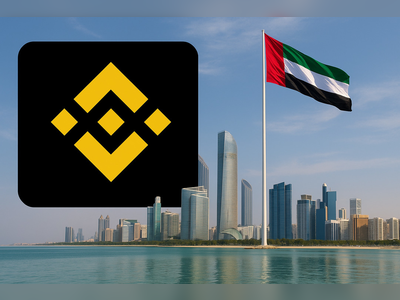
Mada Drives Saudi E-commerce to $7bn in June, Reflecting Shift to Cashless Retail
E-commerce spending in Saudi Arabia via Mada cards surged 72 percent year on year to SR25.97 billion ($6.93 billion) in June, highlighting the Kingdom's accelerating shift towards a cashless retail environment.
Riyadh: E-commerce spending in Saudi Arabia through Mada cards saw a significant increase of 72 percent year-on-year, reaching SR25.97 billion (approximately $7 billion) in June.
This notable surge underscores the nation's rapid transition towards a more digital and cashless retail landscape.According to data from the Saudi Central Bank, also known as SAMA, the volume of online payments also experienced considerable growth, rising by 59.4 percent to 141.55 million transactions across various platforms such as shopping websites, in-app purchases, and e-wallets.
It is worth noting that these figures exclude transactions conducted via international credit card schemes like Visa and Mastercard, demonstrating the substantial domestic infrastructure supporting the digital economy.Mada, a national payments scheme operated by Saudi Payments, a SAMA-owned entity, serves as an integral part of the country's payment ecosystem.
It connects banks, ATMs, point-of-sale terminals, and underpins debit cards issued by local banks, effectively becoming the backbone for everyday spending and online checkout processes.
The deep integration of Mada within the banking system and payment gateways ensures swift, secure processing for both in-store and e-commerce purchases, complementing global payment schemes.This push towards a cashless society is part of the Kingdom's Vision 2030 initiative aimed at increasing the share of electronic retail payments and embedding reliable local infrastructure across everyday commerce.
Saudi authorities are continuously upgrading the infrastructure behind the checkout process.Earlier this summer, SAMA launched an updated e-commerce payments interface that enables providers to utilize national infrastructure while integrating Mada with international networks.
The primary goal is to enhance speed and security for both merchants and consumers.In May, regulators reported near-universal connectivity, as per CST's Saudi Internet Report, which revealed that 99 percent of residents are online and approximately 93 percent of e-commerce purchases are made on local websites.
Saudi Arabia also demonstrated a global lead in network metrics, with average mobile data usage reaching 48 gigabytes per person per month, roughly three times the global average.Furthermore, Mastercard established local e-commerce processing infrastructure within the Kingdom, keeping transactions within the country and supporting faster, more secure checkout processes.Collectively, these indicators point to an expanding, more reliable online market where Mada-enabled checkout, quick delivery, and easy returns are becoming standard practices.A February report by PwC on Saudi Arabia's retail landscape highlighted how the nation's young, tech-savvy population is reshaping consumer demand.
The PwC survey, 'Voice of the Consumer 2024' for Saudi Arabia, showed increasing expectations regarding sustainability, digital innovation, and health.
Data privacy emerged as a key concern among consumers, while there was growing interest in artificial intelligence-enabled shopping tools.Trust levels were particularly high in healthcare and aviation sectors, both achieving scores of eight out of ten.
This can be attributed to strong data protection measures (86 percent), fair treatment of employees (80 percent), and consistent quality service (80 percent).Inflation remained a concern for 36 percent of the population; however, eco-consciousness is gaining traction.
Approximately 45 percent of consumers actively seek products with environmentally-friendly attributes, while about 18 percent are willing to pay between 11 to 20 percent more for locally sourced or recycled goods.Shoppers exhibit pragmatism when it comes to technology and value fast chatbot support while still seeking enhanced in-store experiences through contactless and self-checkout options.
This consumer profile aligns with macroeconomic confidence among executives, as evidenced by PwC's '28th Annual CEO Survey,' where 77 percent of Saudi CEOs expressed optimism about the short-term economic outlook.
This sentiment supports continued investment in digital commerce and customer experience.Partnerships are strengthening logistics and payment capabilities within the Kingdom.
In July, Maersk and Saudi Post signed a strategic partnership that aims to integrate cross-border logistics with local last-mile networks, thereby streamlining fulfillment, customs clearance, and delivery for merchants entering Saudi Arabia and the broader Gulf Cooperation Council.DHL e-commerce expanded its presence in the Kingdom by acquiring a stake in AJEX, enhancing domestic parcel capacity as volumes continue to rise.
Additionally, Saudi Arabia contributed $1.4 million to UNCTAD to improve official statistics on e-commerce and the digital economy.In terms of checkout options, Amazon Payment Services collaborated with Tamara to offer Buy Now, Pay Later services across Saudi Arabia and the UAE.
This partnership is expected to increase conversion rates for online merchants by providing flexible payment alternatives.For both merchants and investors, the opportunity lies in transforming consumer demand into scalable operations.
To achieve this, mobile journeys need to be optimized, localized payment options should be provided, and transparent data-privacy practices must be implemented to establish trust with digitally savvy consumers.
This notable surge underscores the nation's rapid transition towards a more digital and cashless retail landscape.According to data from the Saudi Central Bank, also known as SAMA, the volume of online payments also experienced considerable growth, rising by 59.4 percent to 141.55 million transactions across various platforms such as shopping websites, in-app purchases, and e-wallets.
It is worth noting that these figures exclude transactions conducted via international credit card schemes like Visa and Mastercard, demonstrating the substantial domestic infrastructure supporting the digital economy.Mada, a national payments scheme operated by Saudi Payments, a SAMA-owned entity, serves as an integral part of the country's payment ecosystem.
It connects banks, ATMs, point-of-sale terminals, and underpins debit cards issued by local banks, effectively becoming the backbone for everyday spending and online checkout processes.
The deep integration of Mada within the banking system and payment gateways ensures swift, secure processing for both in-store and e-commerce purchases, complementing global payment schemes.This push towards a cashless society is part of the Kingdom's Vision 2030 initiative aimed at increasing the share of electronic retail payments and embedding reliable local infrastructure across everyday commerce.
Saudi authorities are continuously upgrading the infrastructure behind the checkout process.Earlier this summer, SAMA launched an updated e-commerce payments interface that enables providers to utilize national infrastructure while integrating Mada with international networks.
The primary goal is to enhance speed and security for both merchants and consumers.In May, regulators reported near-universal connectivity, as per CST's Saudi Internet Report, which revealed that 99 percent of residents are online and approximately 93 percent of e-commerce purchases are made on local websites.
Saudi Arabia also demonstrated a global lead in network metrics, with average mobile data usage reaching 48 gigabytes per person per month, roughly three times the global average.Furthermore, Mastercard established local e-commerce processing infrastructure within the Kingdom, keeping transactions within the country and supporting faster, more secure checkout processes.Collectively, these indicators point to an expanding, more reliable online market where Mada-enabled checkout, quick delivery, and easy returns are becoming standard practices.A February report by PwC on Saudi Arabia's retail landscape highlighted how the nation's young, tech-savvy population is reshaping consumer demand.
The PwC survey, 'Voice of the Consumer 2024' for Saudi Arabia, showed increasing expectations regarding sustainability, digital innovation, and health.
Data privacy emerged as a key concern among consumers, while there was growing interest in artificial intelligence-enabled shopping tools.Trust levels were particularly high in healthcare and aviation sectors, both achieving scores of eight out of ten.
This can be attributed to strong data protection measures (86 percent), fair treatment of employees (80 percent), and consistent quality service (80 percent).Inflation remained a concern for 36 percent of the population; however, eco-consciousness is gaining traction.
Approximately 45 percent of consumers actively seek products with environmentally-friendly attributes, while about 18 percent are willing to pay between 11 to 20 percent more for locally sourced or recycled goods.Shoppers exhibit pragmatism when it comes to technology and value fast chatbot support while still seeking enhanced in-store experiences through contactless and self-checkout options.
This consumer profile aligns with macroeconomic confidence among executives, as evidenced by PwC's '28th Annual CEO Survey,' where 77 percent of Saudi CEOs expressed optimism about the short-term economic outlook.
This sentiment supports continued investment in digital commerce and customer experience.Partnerships are strengthening logistics and payment capabilities within the Kingdom.
In July, Maersk and Saudi Post signed a strategic partnership that aims to integrate cross-border logistics with local last-mile networks, thereby streamlining fulfillment, customs clearance, and delivery for merchants entering Saudi Arabia and the broader Gulf Cooperation Council.DHL e-commerce expanded its presence in the Kingdom by acquiring a stake in AJEX, enhancing domestic parcel capacity as volumes continue to rise.
Additionally, Saudi Arabia contributed $1.4 million to UNCTAD to improve official statistics on e-commerce and the digital economy.In terms of checkout options, Amazon Payment Services collaborated with Tamara to offer Buy Now, Pay Later services across Saudi Arabia and the UAE.
This partnership is expected to increase conversion rates for online merchants by providing flexible payment alternatives.For both merchants and investors, the opportunity lies in transforming consumer demand into scalable operations.
To achieve this, mobile journeys need to be optimized, localized payment options should be provided, and transparent data-privacy practices must be implemented to establish trust with digitally savvy consumers.

